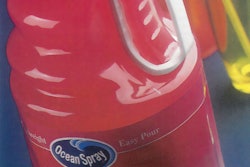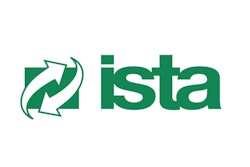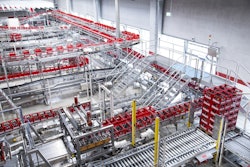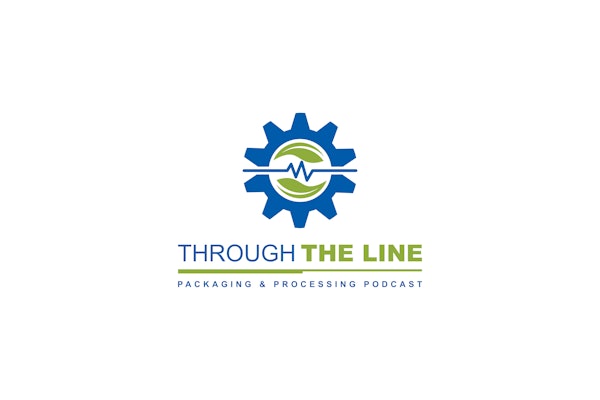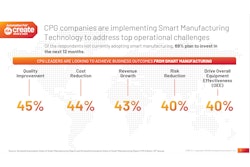
Malaysia, Thailand, and Vietnam have recently announced draconian waste import measures, which they say will stop them being overwhelmed by waste plastic that is damaging their environment. As a result and following mounting pressure for change from consumers and environmental groups, industry, government, and other stakeholders are getting their plastic waste ducks in a row.
According to the Australian Plastics Recycling Survey, Australians consumed a total 3,500,000 tonnes (metric tonne = 1,000 kg, or about 2,200 lb) of plastics in 2016-17. From that total 235,000 tonnes were sent overseas, with 180,000 tonnes recycled locally. In the same period Australians used 5.66 billion single use plastic bags.
Progress has been made on the bag front. About 1.5 billion single-use plastic bags have been eliminated from the waste stream since Australia’s two largest supermarkets, Coles and Woolworths (a duopoly that holds an estimated 70% grocery retail market share), banned them from their stores in 2018 in favor of reusable bags. And four out of Australia’s six states and two of its territories have now issued a full ban. Overall, the nation’s bag consumption has dropped by more than 80% since the bans came into effect.
Packaging waste is more of a challenge. In September 2018 the Australian Government joined business leaders to announce new targets to reduce packaging waste and improve recycling in Australia.
The 2025 National Packaging Waste Target, which sets a sustainable path for Australia’s recyclable waste, comprises four bold goals:
1. 100% of all Australia’s packaging will be reusable, recyclable or compostable by 2025 or earlier
2. 70% of Australia’s plastic packaging will be recycled or composted by 2025
3. 30% average recycled content will be included across all packaging by 2025
4. Problematic and unnecessary single-use plastic packaging will be phased out through design, innovation, or introduction of alternatives
One of the businesses working with government on achieving these objectives is Pact Group, a vertically integrated packaging company and Australia’s biggest rigid plastics player.
Pact has stepped up to the waste challenge in a vocal and visible manner. Following extensive market research, the company launched its End of Waste white paper late last year, which paints a clear picture of the Australian consumer’s views on recycling and sustainability, the state of the market, and most importantly, the scale of the challenge ahead.
Pact’s research reveals that 91% of Australian consumers are concerned about the environmental impact of packaging, while 76% say they are more concerned about packaging waste now than they were five years ago. Tellingly, more than half say they do not understand what happens once their packaging is taken away for recycling and 45% say they would be willing to pay more for environmentally friendly packaging.
“Australian consumers are demanding change. Consumption of packaging is growing exponentially, and our waste management systems are no longer fit for purpose. We can no longer simply rely on consumers to solve the problem, we need government and industry working side by side to create scaled, standardised solutions to tackle packaging waste,” says Raphael Geminder, Pact Group chairman.
He doesn’t downplay the enormity of the task: “We are on a journey and it is terrifying. We have two choices—ignore the noise and tell ourselves we will be okay, or we can embrace change.”
Pact Group’s End of Waste white paper alludes to the tension surrounding Australia’s management of packaging waste and reports the effects of China’s ban on accepting recycled waste are widely evident, with plastic mounting up in warehouses around the country.
As a result, pressure is mounting across the supply chain, from brand owners and packaging manufacturers to councils, governments, and recyclers, to radically change the industry to ensure that less household packaging waste ends up in landfill.
Geminder says that industry needs innovation in sustainability, and while such innovation can increase cost to the supply chain, a unified approach can provide scale to reduce costs and uncover new opportunities so consumers are not forced to choose between value and sustainability.
What Pact and other Australian sustainability pundits are calling for is cross-sector industry collaboration. Their view is that while government support is critical, it’s the packaging industry that must lead a whole-of-society solution by simplifying options for consumers, eliminating problematic products and creating new products that build closed-loop systems to re-use and recycle household packaging waste. No mean feat. It calls to mind a line from Australia’s national anthem, one that goes to the heart of what’s required: “With courage let us all combine, to advance Australia Fair.”
Lindy Hughson is Managing Editor & Publisher, PKN Packaging News, Australia’s leading B2B media platform for the packaging industry.



